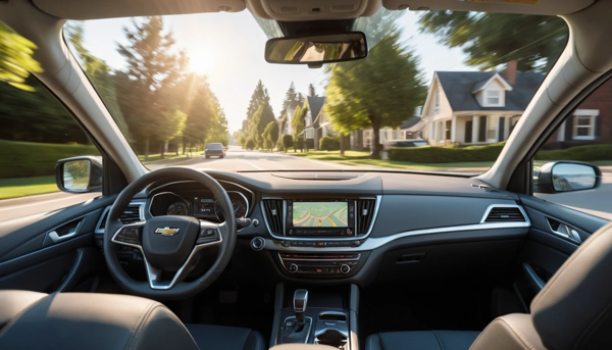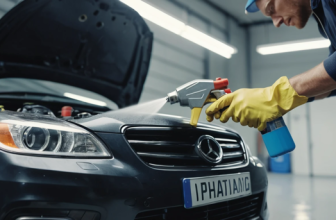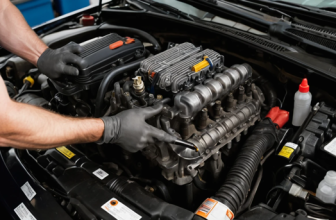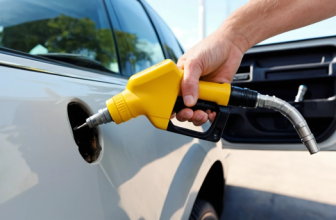Why is my car hesitating when I accelerate? Learn the real reasons behind hesitation and how to fix them before they become expensive problems.
Why Is My Car Hesitating When I Accelerate? 🚗💨
Feeling That Sudden Lag When You Hit the Gas? 😟
Ever stepped on the gas pedal only to feel your car jerk, pause, or stumble instead of taking off smoothly? It’s frustrating—and worrying.
You’re not alone. Thousands of drivers experience acceleration hesitation, which is common during quick take-offs or uphill drives.
So why does this happen? The truth is—it could be a number of things. But don’t worry! We’re diving into all the possible causes and simple fixes to help you get back to that buttery-smooth drive.
Let’s break it down, step-by-step.👇
🚨 What Does Car Hesitation Mean?
Car hesitation happens when your engine momentarily struggles to respond to acceleration. It often feels like:
- A delay in power
- A jerking motion
- Stuttering or shaking
It can occur during:
- Starting from a stop
- Merging onto highways
- Passing other vehicles
This isn’t just annoying—it could also be a warning sign. Ignoring it can lead to serious engine trouble.
🧠 Common Reasons Your Car Hesitates When Accelerating
Let’s get to the root of the issue. Below are the most common causes:
1. Dirty or Faulty Mass Airflow Sensor 🌬️
This sensor tells your engine how much air is entering. If it’s dirty, your engine won’t get the right air-fuel mix.
Symptoms include:
- Hesitation on acceleration
- Poor fuel economy
- Check engine light
2. Bad Fuel Injectors ⛽
Injectors spray fuel into the engine. If clogged or damaged, they won’t deliver enough fuel.
You may notice:
- Rough idling
- Sudden surges
- Poor acceleration
3. Clogged Air Filter 🌫️
A dirty air filter restricts airflow, throwing off the air-fuel ratio.
What happens?
- Engine feels sluggish
- Fuel efficiency drops
- Hesitation, even under load
🛠️ Table: Symptoms & Fixes for Common Issues
| Issue | Common Symptom | Quick Fix |
|---|---|---|
| Dirty MAF Sensor | Jerking acceleration | Clean/replace sensor |
| Clogged Injectors | Lag, engine misfire | Use fuel injector cleaner |
| Dirty Air Filter | Sluggish drive | Replace air filter |
4. Faulty Throttle Position Sensor 📏
This sensor checks your gas pedal’s position. If it breaks, your car gets mixed up.
Watch for:
- Uneven acceleration
- Difficulty maintaining speed
- Engine light popping on
5. Vacuum Leaks 🫧
A vacuum leak messes with engine pressure. It affects how your car handles air and fuel.
Look out for:
- High idle speed
- Whistling sounds
- Poor acceleration
6. Failing Spark Plugs 🔥
Spark plugs light the fuel-air mix. If they’re old, your engine won’t work right.
Signs include:
- Engine misfires
- Reduced acceleration power
- Jerky movements
🚗 Table: DIY Checkpoints for Acceleration Issues
| Part | What to Check | Tools Needed |
| Spark Plugs | Wear, gap, carbon | Spark plug socket |
| Air Filter | Dirt, debris | Just your hands! |
| Vacuum Hoses | Cracks, leaks | Visual inspection |
7. Transmission Trouble ⚙️
If hesitation feels deep in the drivetrain, your transmission might be the issue.
Symptoms:
- Slipping gears
- RPM surges without speed
- Delay in movement after shifting
8. Bad Fuel Pump 🛢️
A weak fuel pump means the engine isn’t getting enough fuel.
You might notice:
- Sputtering at high speeds
- Difficulty starting
- Stalling when accelerating
9. Low-Quality Gasoline ⛽
Yup—sometimes it’s just bad fuel. Cheap or contaminated gas can mess with combustion.
Quick fixes:
- Add fuel system cleaner
- Refill with premium gas
🔍 Table: Fuel-Related Causes vs Solutions
| Problem | How It Affects Acceleration | Suggested Fix |
| Bad Fuel Pump | Inconsistent fuel pressure | Replace pump |
| Dirty Injectors | Uneven spray pattern | Clean or replace |
| Low-Quality Gas | Poor combustion | Fuel additive, premium fill-up |
10. Faulty Oxygen Sensors 🌡️
They regulate fuel-to-air ratio. When they fail, your car may run too rich or too lean.
Clues include:
- Sudden loss of power
- Bad fuel economy
- Engine light codes (P0131–P0175)
11. Timing Issues 🕰️
Engine timing must be precise. If it’s off, acceleration suffers.
Could be caused by:
- Worn timing belt
- Faulty sensors
- Loose timing chain
12. Catalytic Converter Problems 🧱
A clogged catalytic converter can choke exhaust flow, killing performance.
Watch for:
- Rotten egg smell
- Engine overheating
- Poor throttle response
🔧 When to See a Mechanic (and Not DIY)
Not all problems are easy fixes. See a mechanic if:
- You’ve cleaned/changed parts but the issue persists
- The check engine light keeps returning
- Your car stalls during traffic
Paying a bit now can save you thousands later.💸
✅ Simple Maintenance Tips to Prevent Hesitation
- Change your air filter every 12,000–15,000 miles
- Use high-quality fuel from trusted brands
- Clean injectors with a fuel system cleaner every few months
- Replace spark plugs every 30,000–50,000 miles
- Get regular tune-ups to stay ahead of issues
🔚 Final Thoughts: Smooth Drives Ahead! 🛣️
So, why is your car hesitating when you accelerate? It’s usually something simple—dirty sensors, clogged filters, or bad fuel.
The key is to catch it early, troubleshoot confidently, and keep your car on a solid maintenance schedule.
Drive smart, stay safe, and don’t ignore the signs. Your car will thank you with a smooth, steady ride! 🚘
❓FAQs
Why does my car stutter when I press the gas pedal?
A stutter often means misfiring spark plugs or clogged injectors. Check both and clean or replace as needed.
What causes hesitation when accelerating from stop?
Dirty air filters, bad throttle sensors, or vacuum leaks are typical culprits. Inspect these first.
Can bad gas cause my car to hesitate?
Absolutely. Low-quality or old gasoline can mess with combustion and lead to sluggish acceleration.
Why does my engine hesitate when it’s cold?
Cold engines may have poor sensor readings or thick oil. Let the car warm up before driving hard.
Is it safe to drive if my car hesitates?
It’s not ideal. While it may run, hesitation can signal deeper issues. Fix it soon to avoid breakdowns.





